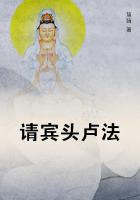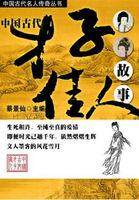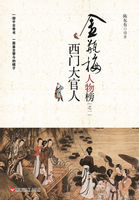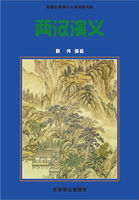THE MALADY OF THE AGE
On a fine evening in the month of September, 1836, a man about thirty years of age was leaning on the parapet of that quay from which a spectator can look up the Seine from the Jardin des Plantes to Notre-Dame, and down, along the vast perspective of the river, to the Louvre.There is not another point of view to compare with it in the capital of ideas.We feel ourselves on the quarter-deck, as it were, of a gigantic vessel.We dream of Paris from the days of the Romans to those of the Franks, from the Normans to the Burgundians, the Middle-Ages, the Valois, Henri IV., Louis XIV., Napoleon, and Louis-Philippe.
Vestiges are before us of all those sovereignties, in monuments that recall their memory.The cupola of Sainte-Genevieve towers above the Latin quarter.Behind us rises the noble apsis of the cathedral.The Hotel de Ville tells of revolutions; the Hotel-Dieu, of the miseries of Paris.After gazing at the splendors of the Louvre we can, by taking two steps, look down upon the rags and tatters of that ignoble nest of houses huddling between the quai de la Tournelle and the Hotel-Dieu,--a foul spot, which a modern municipality is endeavoring at the present moment to remove.
In 1836 this marvellous scene presented still another lesson to the eye: between the Parisian leaning on the parapet and the cathedral lay the "Terrain" (such was the ancient name of this barren spot), still strewn with the ruins of the Archiepiscopal Palace.When we contemplate from that quay so many commemorating scenes, when the soul has grasped the past as it does the present of this city of Paris, then indeed Religion seems to have alighted there as if to spread her hands above the sorrows of both banks and extend her arms from the faubourg Saint-Antoine to the faubourg Saint-Marceau.Let us hope that this sublime unity may be completed by the erection of an episcopal palace of the Gothic order; which shall replace the formless buildings now standing between the "Terrain," the rue d'Arcole, the cathedral, and the quai de la Cite.
This spot, the heart of ancient Paris, is the loneliest and most melancholy of regions.The waters of the Seine break there noisily, the cathedral casts its shadows at the setting of the sun.We can easily believe that serious thoughts must have filled the mind of a man afflicted with a moral malady as he leaned upon that parapet.
Attracted perhaps by the harmony between his thoughts and those to which these diverse scenes gave birth, he rested his hands upon the coping and gave way to a double contemplation,--of Paris, and of himself! The shadows deepened, the lights shone out afar, but still he did not move, carried along as he was on the current of a meditation, such as comes to many of us, big with the future and rendered solemn by the past.
After a while he heard two persons coming towards him, whose voices had caught his attention on the bridge which joins the Ile de la Cite with the quai de la Tournelle.These persons no doubt thought themselves alone, and therefore spoke louder than they would have done in more frequented places.The voices betrayed a discussion which apparently, from the few words that reached the ear of the involuntary listener, related to a loan of money.Just as the pair approached the quay, one of them, dressed like a working man, left the other with a despairing gesture.The other stopped and called after him, saying:--"You have not a sou to pay your way across the bridge.Take this," he added, giving the man a piece of money; "and remember, my friend, that God Himself is speaking to us when a good thought comes into our hearts."This last remark made the dreamer at the parapet quiver.The man who made it little knew that, to use a proverbial expression, he was killing two birds with one stone, addressing two miseries,--a working life brought to despair, a suffering soul without a compass, the victim of what Panurge's sheep call progress, and what, in France, is called equality.The words, simple in themselves, became sublime from the tone of him who said them, in a voice that possesses a spell.Are there not, in fact, some calm and tender voices that produce upon us the same effect as a far horizon outlook?
By his dress the dreamer knew him to be a priest, and he saw by the last gleams of the fading twilight a white, august, worn face.The sight of a priest issuing from the beautiful cathedral of Saint-Etienne in Vienna, bearing the Extreme Unction to a dying person, determined the celebrated tragic author Werner to become a Catholic.
Almost the same effect was produced upon the dreamer when he looked upon the man who had, all unknowing, given him comfort; on the threatening horizon of his future he saw a luminous space where shone the blue of ether, and he followed that light as the shepherds of the Gospel followed the voices that cried to them: "Christ, the Lord, is born this day."The man who had said the beneficent words passed on by the wall of the cathedral, taking, as a result of chance, which often leads to great results, the direction of the street from which the dreamer came, and to which he was now returning, led by the faults of his life.
This dreamer was named Godefroid.Whoever reads this history will understand the reasons which lead the writer to use the Christian names only of some who are mentioned in it.The motives which led Godefroid, who lived in the quarter of the Chaussee-d'Antin, to the neighborhood of Notre-Dame at such an hour were as follows:--The son of a retail shopkeeper, whose economy enabled him to lay by a sort of fortune, he was the sole object of ambition to his father and mother, who dreamed of seeing him a notary in Paris.For this reason, at the age of seven, he was sent to an institution, that of the Abbe Liautard, to be thrown among children of distinguished families who, during the Empire, chose this school for the education of their sons in preference to the lyceums, where religion was too much overlooked.















